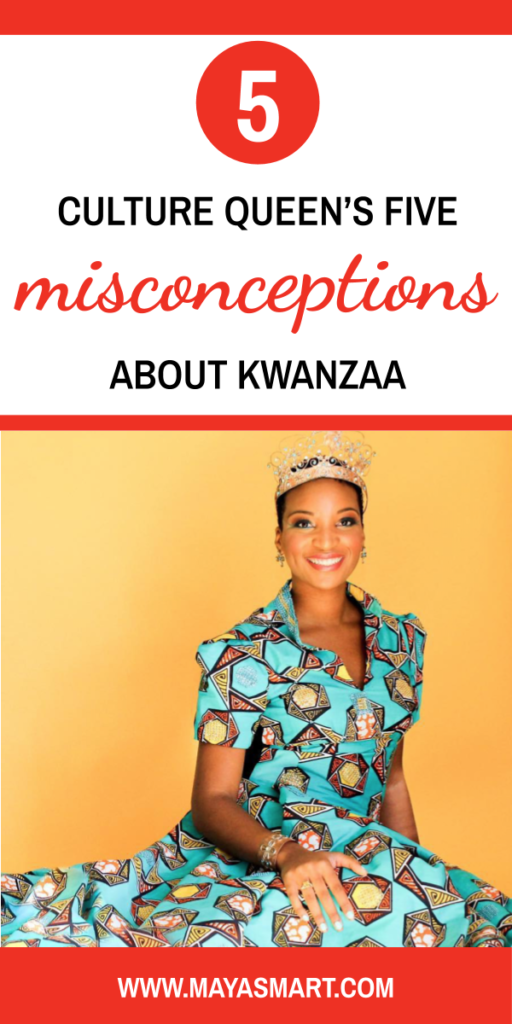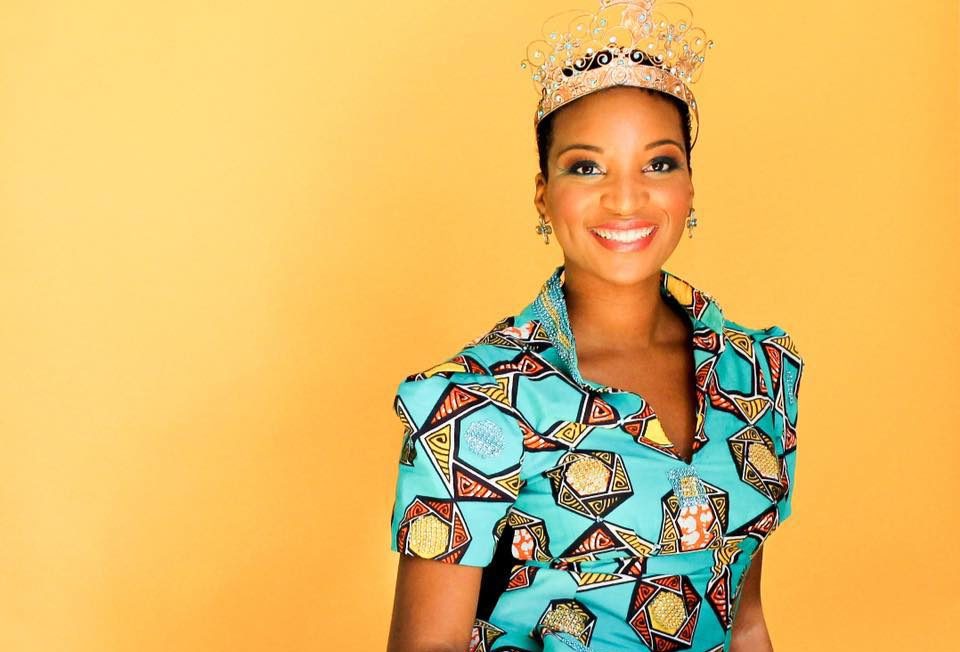Culture Queen Discusses Top Kwanzaa Misconceptions
Got questions about Kwanzaa? You’re not alone. Here’s Kwanzaa educator Jessica
“Culture Queen” Hebron’s rundown of the top five misconceptions about Kwanzaa.
Misconception 1: Kwanzaa is a Religion
Kwanzaa is a celebration of Pan-African family and community, not a religious ritual. “People think that if you start celebrating Kwanzaa, you’re devil worshiping or you’re worshiping principles instead of God. That’s not true. The principles were created to be universal for black people in America, so no matter what their religious experiences or cultural experiences, they have one thing that they can unite with—Kwanzaa.”
Kwanzaa is compatible with any family’s religious faith. “You could celebrate Kwanzaa and be Jewish and black,” Culture Queen explains. “You could celebrate Kwanzaa and be Christian and black. You could celebrate Kwanzaa and be Buddhist and black.”
Misconception 2: Kwanzaa is a Christmas Knock-off
Culture Queen cautions against dismissing Kwanzaa as a “knock off” of Christmas just because it starts on the day after Christmas. Kwanzaa “has its own principles, its own traditions, its own decorations, its own meanings and purposes,” she says. “The reason that it takes place in December is because traditionally in Africa there are a lot of harvest festivals that take place during that time. Kwanzaa is a Swahili word that means first fruits of the harvest.” The holiday’s timing has its advantages, though. “It is convenient that it’s during a time when families are already gathering.”
Misconception 3: There Are No Gifts in Kwanzaa
Contrary to popular belief, people who celebrate Kwanzaa can give and receive gifts. “Gifts during Kwanzaa, called zawadi, should be either purchased from black-owned businesses or handmade by the people who are giving them,” Culture Queen explains. “You can be so creative with that. It doesn’t mean that you’re getting some rinky-dink present.”
Misconception 4: Kwanzaa Isn’t a “Real” Holiday
“I always challenge people to treat all holidays with respect,” says Culture Queen. “There are no fake holidays. There are no holidays that aren’t serious… I find myself always advocating for people to give reverence to the holiday the same way that they would [other holidays].
“When black people, specifically, don’t treat Kwanzaa with respect, what they don’t understand is that it’s almost like they’re saying it’s not real, and because it’s not real, they aren’t real and shouldn’t be taken seriously,” she explains. “Because if you’re not going to celebrate the holiday that was created just for you, then why do you expect the world to respect and take care of you?”
“This is a holiday,” she affirms. “This is something that’s supposed to be joyous and fun for you.”
Misconception 5: To Celebrate Kwanzaa is to Celebrate Its Founder
Like many founders of historical movements, Kwanzaa’s chief architect has a controversial personal history. Maulana Karenga was convicted in 1971 of two felonies
for assaulting and tormenting women in his California home. Culture Queen draws a firm line between the founder’s history and the holiday’s positive impact. “My response to this is the same response that I would give to someone who would talk about Bill Cosby and The Cosby
Show,” she says. “What I would say is he should be ashamed of what he did. However, the holiday that he created for black people is one of the highlights of his life and one of the positive things that he did. I would like to just isolate that and leave that for what it is.”
“This holiday is now so much bigger than him,” she says. “His history and the things that he’s done don’t affect the positivity and the intent and the mission of the holiday. A lot of times people think that he owns it, and he does. But one day he won’t be here and it’ll be years and years later and people will still be celebrating Kwanzaa. The intent of the holiday will rise more so than his history.”
See the official Kwanzaa
website to learn more about the holiday. Also, check out Culture Queen’s thoughts on bringing
Kwanzaa to life and Kwanzaa
picture book recommendations.

Did any of these points change your understanding of Kwanzaa? Are you more or less likely to celebrate the holiday as a result?
Culture Queen Resources


